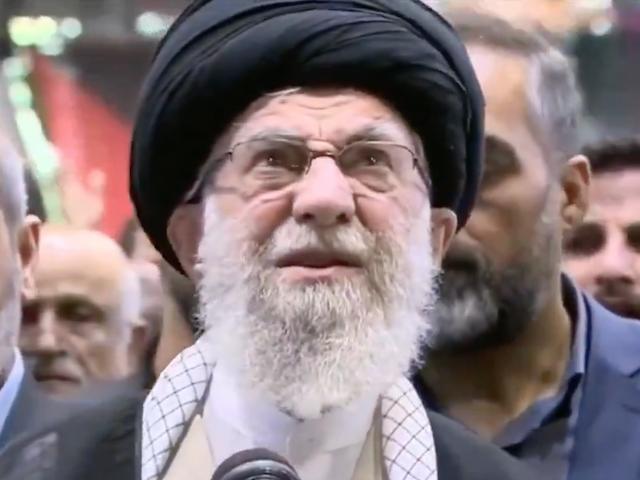The geopolitical landscape in the Middle East has been dramatically shaken by an audacious yet impressive assassination. On Wednesday, Supreme Leader Ali Khamenei of Iran ordered a direct and potentially catastrophic attack on Israel. This order follows the targeted killing of Hamas leader Ismail Haniyeh in Tehran, an event reported by the New York Times and now sending shockwaves through international relations.
Jerusalem’s Stance and Iran’s Outrage
Jerusalem has not officially claimed responsibility for the missile strike that resulted in the death of Haniyeh, a pivotal figure within the Palestinian terror organization, and his bodyguard early Wednesday morning. Despite this, the Islamic Republic is in uproar, convening an emergency session of its Supreme National Security Council at Khamenei's residence. Sources reveal that Quds Force commander Esmail Ghaani was in attendance when Khamenei issued his directive.
BREAKING: Ali Khamenei, the Supreme Leader of Iran, has ordered direct strikes against Israel.
— Vivid.🇮🇱 (@VividProwess) July 31, 2024
I think the war is going to get ten times worse, and I also believe Hezbollah will go all-in as well, with 150,000 missiles in its arsenal.
The next few days will reveal everything. pic.twitter.com/fy3liMBybW
Iran and Hamas are unwavering in their accusations against Israel for orchestrating the assassination. Haniyeh was in Tehran for the inauguration of President Masoud Pezeshkian, a moment meant to symbolize Iranian strength but now marred by security failures. Iranian officials, as reported by journalist Farnaz Fassihi, are in a state of "utter shock" over the incident. This blow to Iran’s security reputation comes at a time when Tehran seeks to project dominance across the region.
US Reactions and Strategic Calculations
The Pentagon and US officials expressed surprise at Haniyeh’s elimination, particularly given its occurrence within Tehran's borders. While the brazen nature of the strike demands a response from Iran, a senior US military official speculated that Tehran might be reluctant to escalate into a full-scale war with Israel. However, this cautious optimism does not mitigate the potential for severe regional instability.
Iran’s Military Retaliation Plans
According to the Times, Iranian military commanders are deliberating over a response akin to the unprecedented mid-April assault, where over 300 drones and missiles were launched at Israel. These attacks are planned to target military installations near Tel Aviv and Haifa, intentionally avoiding civilian areas to minimize broader casualties.
One strategy under consideration involves a synchronized assault on Israel by Iran and its allied terror proxies, including the Houthis in Yemen and militias in Iraq and Syria. Additionally, Hezbollah, Iran’s powerful proxy in Lebanon, is expected to respond separately to the targeted killing of senior Hezbollah official Fuad Shukr in Beirut, an operation acknowledged by the Israeli military.
HAPPENING NOW:The funeral of Hamas Leader Ismail Haniyeh and his bodyguard is officially underway in Tehran, Iran.
— Brian BJ (@iamBrianBJ) August 1, 2024
Iranian Supreme Leader Khamenei and Iran’s new president, Dr. Masoud Pezeshkian could be seen crying, while people chant "Death to Israel" and "Death to America." pic.twitter.com/2AYrmQlouN
Heightened Security Measures in Israel
In light of these developments, the Israel Security Agency (ISA) has issued stringent security directives for Prime Minister Benjamin Netanyahu and other government officials. As per Channel 12, these precautions include stringent requirements for protective measures during public events and personal approval from ISA head Ronen Bar for any official tours.
Israeli embassies worldwide have also been instructed to elevate their alert status, urging ambassadors and diplomatic representatives to maintain a low profile to mitigate the risk of Iranian reprisals.
Iran’s Funeral and Rhetoric
Tehran saw thousands rallying in the streets on Thursday morning for Haniyeh’s funeral, chanting “death to Israel” and calling for the nation’s destruction. Hezbollah and Palestinian flags were prominent among the mourners, alongside posters of the slain Hamas leader. Following the funeral, Haniyeh’s body will be transported to Doha, Qatar, for burial, further highlighting Qatar’s role as a significant backer of Hamas.
The fear of the Israeli Air Force and Mossad:
— FJ (@Natsecjeff) August 1, 2024
During Ismail Haniyeh's funeral prayers in Tehran today, Khamenei kept nervously looking at the sky.
This is the fear that is needed for deterrence. America has lost this fear but Israel still got it! #Iran pic.twitter.com/zZvGSVvELs
Statements from Iranian Leadership
Supreme Leader Khamenei has declared vengeance a duty, condemning the Zionist regime for the assassination. He vowed harsh retribution, a sentiment echoed by President Pezeshkian and Foreign Ministry spokesman Nasser Kanaani. Alongside plans for retaliation, Khamenei has instructed IRGC commanders to prepare for defensive maneuvers against potential Israeli or US counter-attacks.
US Defense Secretary’s Assurance
During an official visit to the Philippines, US Defense Secretary Lloyd Austin reaffirmed America’s commitment to defending Israel. He referenced the coalition's successful interception of Iranian drones and missiles in April, stressing that the US stands ready to support Israel against any further threats.
Austin underscored the importance of diplomatic efforts to avoid a broader conflict, emphasizing that the US will continue to work towards de-escalating tensions in the region. His conversation with Israeli Defense Minister Yoav Gallant reiterated this stance, highlighting the unyielding support for Israel’s right to self-defense and the ongoing pursuit of diplomatic resolutions.
Israel’s Preparedness and Diplomatic Engagements
Minister Gallant expressed gratitude for the unwavering US support, noting the critical nature of the Israel-US relationship in deterring Iranian aggression. He affirmed Israel’s readiness to defend its citizens against any threats from Hezbollah or other Iranian-backed entities, while also stressing the importance of achieving a hostage deal with Hamas amidst the escalating tensions.
In conclusion, the assassination of Ismail Haniyeh has sparked a volatile and dangerous situation, with Iran poised for retaliation and Israel bracing for potential attacks. The coming days will be crucial in determining whether diplomatic efforts can stave off a full-blown conflict in the already tumultuous Middle East.


